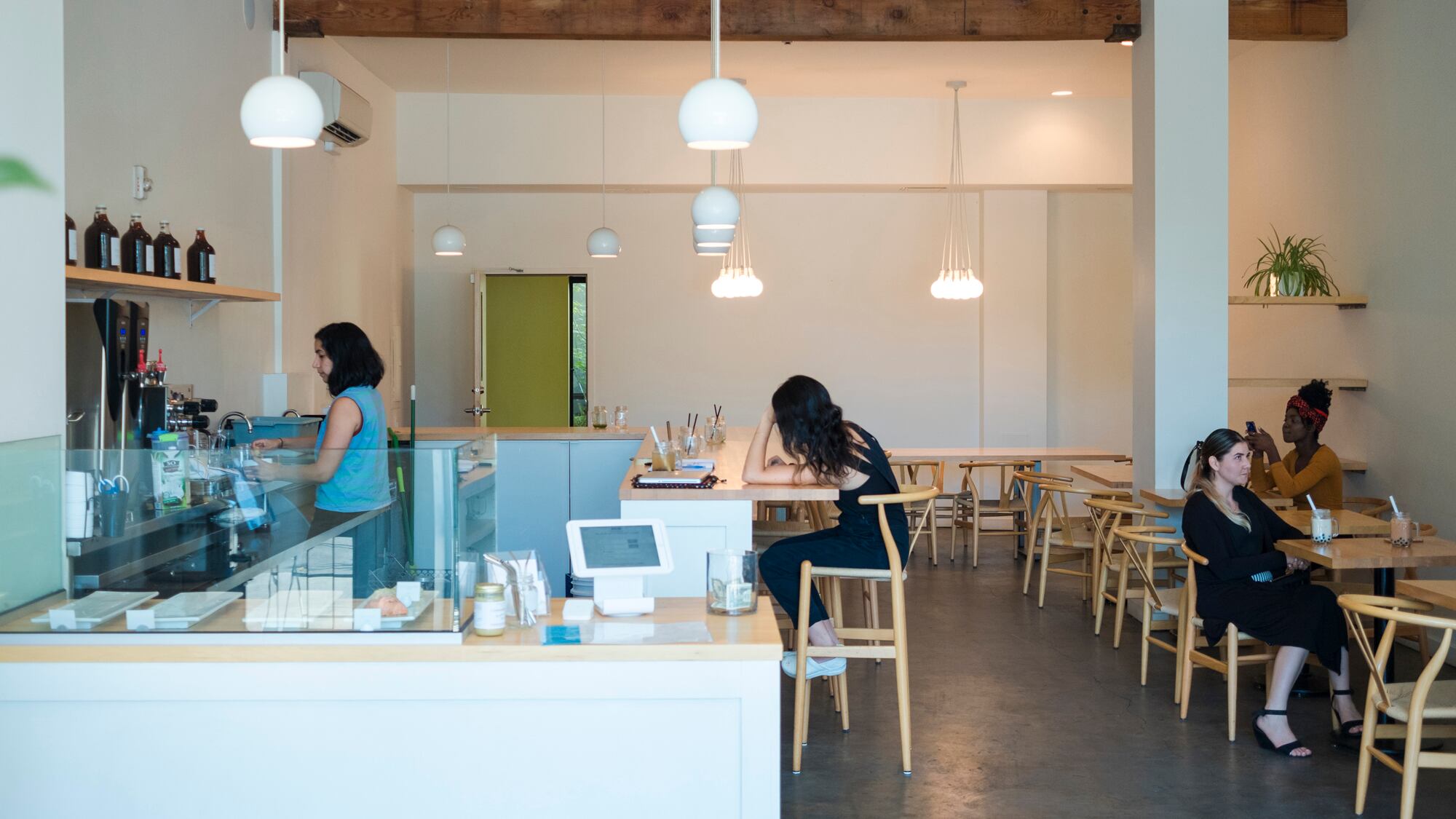When Erica Swanson opened her first tea shop in 2014, on Northeast Killingsworth Street and 16th Avenue, she was riding a bubble.
Tea Bar has built its brand serving bubble tea: the cold, sweet, milky Taiwanese drink that comes with boba, or tapioca balls, in the bottom of the cup.
Tea Bar now has three Portland locations, with a fourth opening next month. Swanson's shop fit right into the gentrifying Vernon neighborhood, sandwiched between fried-chicken joint Hat Yai and barbecue phenom Podnah's Pit.
The store is minimalist in its aesthetic: white walls, indoor plants, stainless steel straws, Mason jar mugs, a glass pastry case and wishbone chairs. And it promised boba tea made from natural ingredients—no powders.
Last month, Gunn Chan opened a new boba shop on Northeast 16th Avenue and Alberta Street, just three blocks south of Tea Bar's first location.
Tiki Tea, like Tea Bar, offered a natural version of boba tea. And its aesthetic was strikingly similar: white walls, stainless steel straws, Mason jar mugs and even the same design of blond-wood wishbone chairs.

Swanson noticed. And she responded in the way that has come to characterize our era: She took to Instagram.
"@tikiteapdx copied many elements of my interior design for @teabar," read the July 16 post from Swanson's personal Instagram, @ericaindira, which has 3,466 followers. "The owner of this place should be ashamed. So disrespectful and 3 blocks from one of our shops."
Several Tea Bar customers followed the link over to Tiki Tea's Instagram page, accusing the tea shop of the design equivalent of plagiarism.
"All of this is just so wrong! This whole business cannot be serious. At least give @teabar their credit if y'all are just gonna take all their shit!" @ho_onani wrote.

A flame war between two bubble tea competitors may seem preposterous. But Portland is a city that treasures its culinary pleasures almost as much as it enjoys arguing over the moral righteousness of its chefs.
Last year, anger over two white women opening a breakfast burrito cart led to death threats and caused the cart to shutter. The debate over "cultural appropriation" of another people's cuisine lasted for much of the year.
The tea shop dispute is, so far, less explosive—but it too raises questions about borrowing and online bullying. And it touches on an issue that other, larger retailers have dealt with before: Who owns an aesthetic? Can you legally protect a look?
Brenda Eichelberger, a business instructor at Portland State University, says some interior designs can be legally protected—but copycats can usually find loopholes. "Basically, people can copy what you're doing and you can spend a whole lot of money trying to make them stop," she says, "but it's very difficult to do."
At least one observer thinks Swanson was out of line.
"As a CEO of a well-known tea shop in Portland, it's shocking to see that Erica Swanson would pick on a small business," says Daniel Huynh, a reader who alerted WW to the fight. "Tea Bar does not copyright any aesthetic and it is unbelievable that they would put down Tiki Tea for simply adhering to the trending simple/clean aesthetic."
Many commenters on Instagram agreed that Tea Bar fans were just picking on a smaller business.

In an Instagram post July 16, Tiki Tea defended its design and said it did not copy anything.
"My little sister is a designer who was greatly passionate about art and design. She is a long time admiration of Hans Wegner's design, especially his Wishbone chair. The use of the chair was my little sister's recommendation, who had no idea the existence of Tea Bar and never been there when she recommended the chairs," read the post from @tikiteapdx, which has 177 followers.
Chan, Tiki Tea's owner, declined WW's requests for comment, referring a reporter to the shop's Instagram post. "People will have a fair judgment," the shop operators replied to inquiries via Facebook. "No need to say a word."

Swanson has taken down her initial Instagram post.
"In retrospect I shouldn't take it personally," Swanson says. "I just read The Four Agreements, and I just need to read it again." (It's a book of spiritual teachings.)
She regrets confronting her rival online. "I just don't want them to feel bullied," she says. Swanson says that while she wishes Tiki Tea well, she maintains it copied her shop's vibe.
"When I have a photo of Tea Bar and a photo of their shop together," she says, "the similarity is there."
